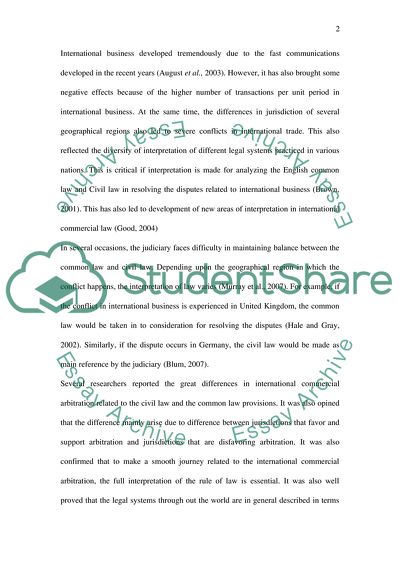Cite this document
(A Comparison between the Common Law and Civil Law Legal Traditions Coursework, n.d.)
A Comparison between the Common Law and Civil Law Legal Traditions Coursework. https://studentshare.org/law/1729316-critically-discuss-a-comparison-between-the-common-law-and-civil-law-legal-traditions-with-particular-reference-to-the-importance-of-this-comparison-for-international-business
A Comparison between the Common Law and Civil Law Legal Traditions Coursework. https://studentshare.org/law/1729316-critically-discuss-a-comparison-between-the-common-law-and-civil-law-legal-traditions-with-particular-reference-to-the-importance-of-this-comparison-for-international-business
(A Comparison Between the Common Law and Civil Law Legal Traditions Coursework)
A Comparison Between the Common Law and Civil Law Legal Traditions Coursework. https://studentshare.org/law/1729316-critically-discuss-a-comparison-between-the-common-law-and-civil-law-legal-traditions-with-particular-reference-to-the-importance-of-this-comparison-for-international-business.
A Comparison Between the Common Law and Civil Law Legal Traditions Coursework. https://studentshare.org/law/1729316-critically-discuss-a-comparison-between-the-common-law-and-civil-law-legal-traditions-with-particular-reference-to-the-importance-of-this-comparison-for-international-business.
“A Comparison Between the Common Law and Civil Law Legal Traditions Coursework”. https://studentshare.org/law/1729316-critically-discuss-a-comparison-between-the-common-law-and-civil-law-legal-traditions-with-particular-reference-to-the-importance-of-this-comparison-for-international-business.


